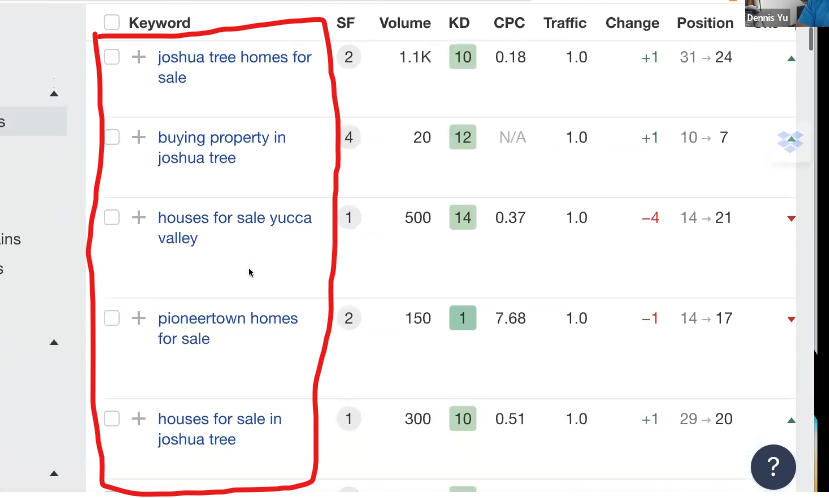
Sean Dittmer of C&S Real Estate had been investing in SEO for months, but something wasn’t adding up—his website wasn’t ranking well, and he wasn’t seeing the expected results.
That’s when Justin Martin, whom I’ve worked with for years, introduced us. He knew that a proper SEO audit could reveal what was holding Sean’s business back and help turn things around.
What we found was eye-opening, and it’s a lesson for any real estate business looking to improve its online presence.
Alongside Justin Martin, we looked at his online presence to find problems and create a simple plan to fix them.
Weak SEO Hurting Search Rankings
Sean’s website looks nice, but it has weak SEO.
I noticed the same case when I performed a similar SEO audit for Bend Relo, a real estate company.
The biggest problems are:
- Few strong links pointing to the site.
- Not enough useful content.
- Business details are different across websites, which confuses Google.
Because of this, C&S Real Estate does not show up well for local searches like “buying property in Joshua Tree” or “real estate agents in Yucca Valley.”

The good news? The competition is not tough. A few changes can help Sean’s business rank higher on Google.
Solution: Fixing Google Business and Listings
One major issue is different business names across websites.
Sometimes, it is called “Sold by Sean & Cam,” and other times, “Cam & Sean’s Real Estate Team.” Even Facebook has a different version. Google gets confused, which hurts rankings.
Fix:
- Standardize the business name, address, and phone number (NAP) on all platforms.
- Update all listings so they match exactly across Google My Business, Facebook, and other directories.
Lack of Useful Content
SEO is not just about ranking—it’s about helping people find useful information.
Currently, Sean’s business is not creating enough content, making it harder to attract new clients through search engines.
Solution: Creating Simple and Useful Content
- One-Minute Videos – Short videos about real estate tips and local market updates. These will be shared on Google, Facebook, and the website.
- Articles & Press Releases – Convert the videos into blog posts and news articles to increase credibility.
- Social Media & Engagement – Respond to comments, answer questions, and share real client stories to build trust.
Spammy SEO Tactics
Sean has been paying $1,200 a month for SEO services.
The issue? His SEO company has been building fake links—the kind of links that might help for a short time but will eventually get penalized by Google.
We found links from random, low-quality websites like Android wallpaper blogs. Google sees this as cheating and will eventually block these sites.

When Sean saw this, he was shocked. “I thought it was getting handled because I was hiring somebody who did this,” he admitted.
The realization that he had been paying for spammy tactics frustrated him. “So you’re telling me I’ve been wasting my money?” he asked. The answer, unfortunately, was yes.
Solution: Switching to Ethical SEO Practices
- Stop Fake Link Building – Cut ties with the current SEO company.
- Build Real Links – Gain backlinks from trusted sources like local business directories and real estate blogs.
- Improve Content Strategy – Create real, helpful content that earns organic backlinks.
Sean appreciated the transparency, saying, “I just need you to tell me what to do, and we’ll do it.”
Next Steps: The Simple Plan for C&S Real Estate
- Grant Access – Sean’s team will give us access to Google Analytics, Google Business, and the website so we can track and improve SEO performance.
- Start Creating Content – One-minute videos every week, turned into blog posts, news articles, and social media updates.
- Fix Business Listings – Make sure all business details are the same across websites.
- Remove Fake Links – Stop working with the SEO company and use only honest SEO strategies.
- Use Local Service Ads – Google’s Local Service Ads (LSAs) will help bring in new leads from Joshua Tree and Yucca Valley.
Final Thoughts: A Smarter, Long-Term Strategy
By using real content, real engagement, and Google-approved SEO, Sean’s business will attract more customers and rank higher in search results.
And the best part? He just saved $1,200 a month by stopping fake SEO.
If you’d like to explore your SEO and marketing in more detail, the Quick Audit offers a chance to address your challenges and gain clarity on your next steps.
